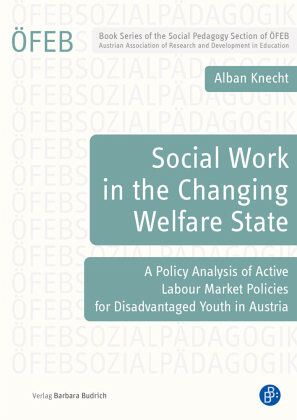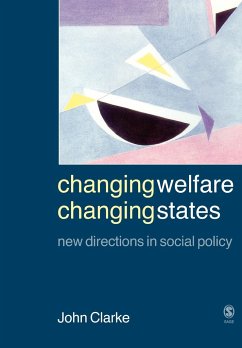
Social Work in the Changing Welfare State
A Policy Analysis of Active Labour Market Policies for Disadvantaged Youth in Austria
Versandkostenfrei!
Versandfertig in 2-4 Wochen
39,99 €
inkl. MwSt.

PAYBACK Punkte
20 °P sammeln!
Wie kann die Arbeitsmarktpolitik Jugendliche beim Berufseinstieg unterstützen? Alban Knecht analysiert politische Diskurse und institutionelle Veränderungen der Beschäftigungsförderung benachteiligter Jugendlicher in Österreich vor dem Hintergrund der Ressourcentheorie. Er diskutiert die Einführung von Maßnahmen wie überbetrieblicher Lehre, Ausbildungsgarantie und Ausbildungspflicht und verdeutlicht dabei die Bedeutung sozialinvestiver, befähigungsorientierter, neoliberaler und rechtspopulistischer Leitbilder für die praktische Arbeit der Fachkräfte und die Jugendlichen.
Dieser Artikel kann nur an eine deutsche Lieferadresse ausgeliefert werden.












